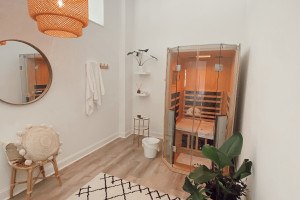Meet the First Half of the 2022 Health Hero Challenge Semifinalists
Learn how these five local wellness leaders are helping Philadelphians live healthier lives, and what charities they're supporting.
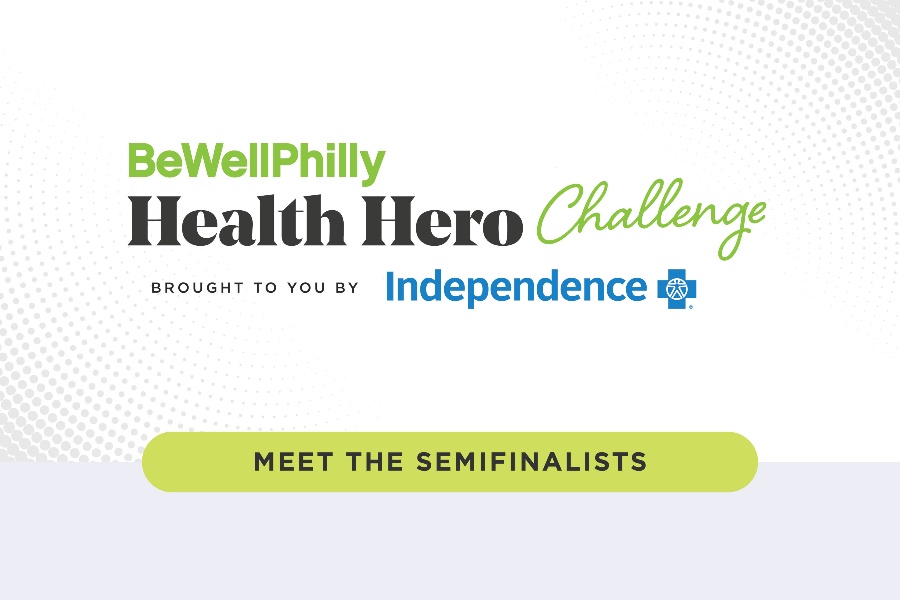
Last week, we announced the 10 semifinalists for this year’s Be Well Philly Health Hero Challenge presented by Independence Blue Cross.
To help you get to know these local wellness leaders better, we’ll be covering who they are, what they do, and what they stand for over the next two weeks. That way, you’ll have a better sense of what motivates them to help others, what improvements they’d love to see happen locally, and the nonprofits they’re advocating for.
As a reminder, you’re able to vote once per day, every day until September 29th for who you’d like to see make it to the final round. The winner will not only be crowned the 2022 Health Hero, but will receive a $15,000 donation to their charity of choice. The two runners-up will each receive a $2,500 donation to their selected charities, as well.
This week, we’re highlighting half of the 10 individuals who are in the running! Below, meet five of this year’s Health Hero Challenge semifinalists:
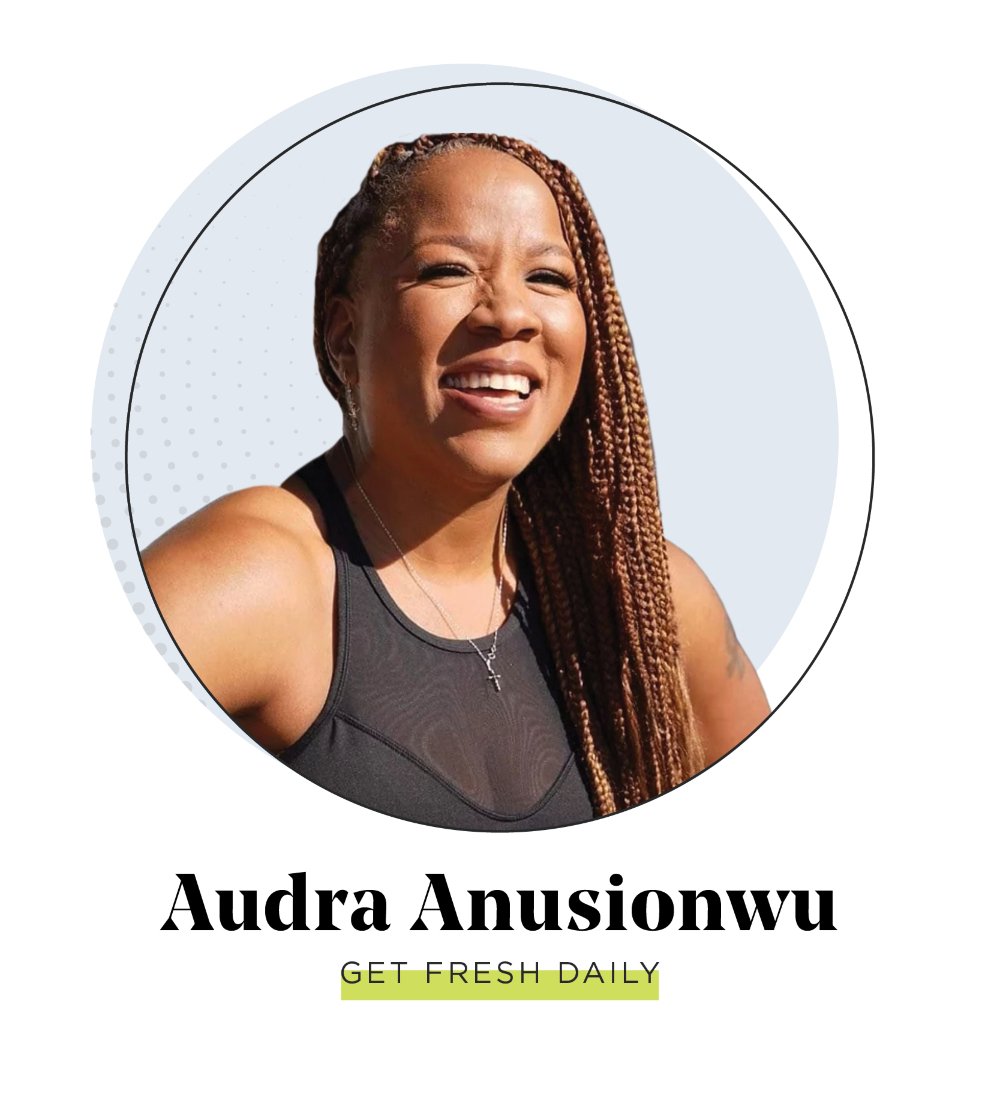
Who: Audra Anusionwu, founder and CEO of BeautiFitStrong, a women-oriented fitness and wellness business. Anusionwu designed and executed the BeautiFitStrong library program at the Widener and Schuylkill Falls branches, which offered a free, five-month health and fitness workshop series to the community.
Nonprofit of choice: Get Fresh Daily, a social enterprise celebrating community, culture and plant-centric living through events and education. Founded by Jiana Murdic, Get Fresh Daily interrupts dominant narratives depicting wellness as inaccessible for marginalized communities by showcasing people of color actively engaging with nature and exhibiting healthy, vibrant lifestyles.
What motivates you to try to make Philadelphia a healthier place?
“While my business is a for-profit, it serves as a safe space for women to learn how to be healthy. In a male-dominated fitness industry, I believe that we provide a welcoming place for women trainers to learn and grow. Highly-skilled women trainers are an asset to the industry where its largest consumers are women, and we take our knowledge and experience to the community to model that fitness is for everybody regardless of gender, nationality, ethnicity, size, fitness level, age and so on.”
What policy would you institute if you could?
“Incorporating fitness into the Greater Philadelphia Health Action centers is medically necessary, and [I’d like to see] funding provided for certified fitness trainers to work alongside nutritionists and other practitioners to help patients with their wellness journey.”
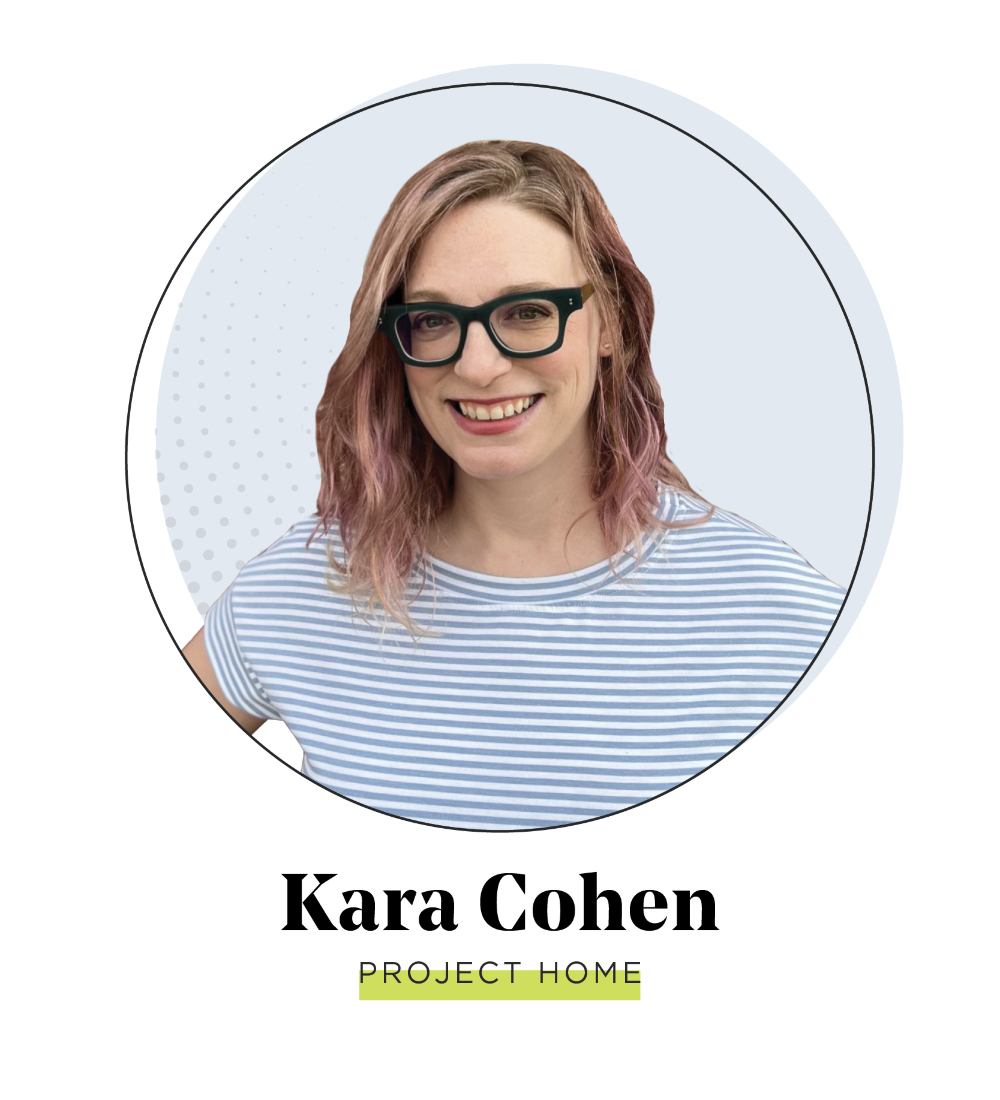
Who: Kara Cohen, a nurse practitioner and the associate director of Project HOME’s street medicine team. In this role, Cohen provides medical, low-barrier, harm-reduction care to people experiencing homelessness in Philadelphia. “Basically what that means is we make it really easy for people to access our services and follow up with us, work collaboratively with our patients to develop plans of care that address their health goals, … and support people in redefining their expectations of wellness and letting them know they deserve excellent healthcare, regardless of their housing status,” Cohen says.
Nonprofit of choice: Project HOME, a Philly-based organization that works to break the cycle of homelessness and poverty throughout the city. It provides a variety of services, including housing, education and employment support, advocacy, and healthcare services, for the betterment of the community.
What motivates you to try to make Philadelphia a healthier place?
“After moving to Philadelphia in 2006 to attend nursing school, I realized there is a striking disparity in the healthcare and wellness of the residents here. We have some of the most innovative and dynamic hospital systems and healthcare professions schools in the entire country, and yet, there are so many members of our community who are not accessing or are unable to fully utilize those services. A major goal of our street medicine team is to provide preventive and primary care services for people living on the streets of our city — and not have them wait until an emergency necessitates care. The healthcare disparities in Philly can be improved, both by educating our providers and healthcare systems how to engage and retain patients, and by empowering patients to be active participants in their healthcare.”
What policy would you institute if you could?
“I would love to see universal healthcare. Healthcare access is a human right, and everybody should be afforded equal access. In addition, I think it’s extremely important to improve timely and affordable access to quality mental health and behavioral health services — including access to substance use treatment — in Philadelphia.”
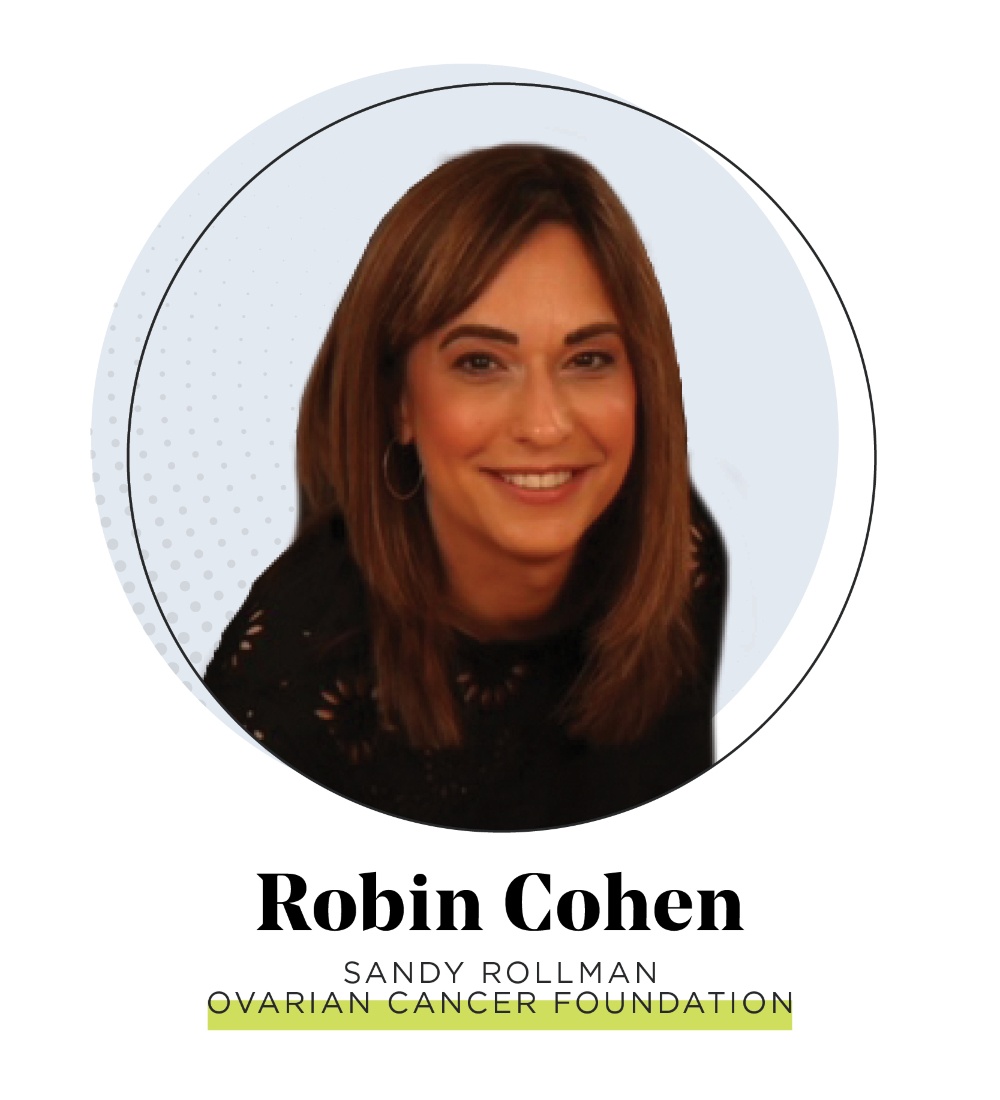
Who: Robin Cohen, co-founder and CEO of the Sandy Rollman Ovarian Cancer Foundation. Cohen supports women and families who are navigating and/or living with the realities of an ovarian cancer diagnosis, and has worked to increase public awareness, research, and funding for the disease.
Nonprofit of choice: Sandy Rollman Ovarian Cancer Foundation, a nonprofit that works to “fight for those who are fighting, speak for those who have fallen silent and provide for those who are working towards the end of ovarian cancer.” The foundation was co-created by Robin Cohen and Adriana D’Alessandro in honor of Sandy Rollman, who passed away from advanced ovarian cancer in 2000.
What motivates you to try to make Philadelphia a healthier place?
“After my patient Sandy Rollman passed away from ovarian cancer, I knew that if ovarian cancer could happen to her at the age of 32, it could happen to anyone. I was devastated by her loss, but I was also driven to start a foundation in her honor. I had another patient who was dying of ovarian cancer tell me, ‘You go out and you fight for us,’ which is what I live by — I go out and I fight for these women.”
What policy would you institute if you could?
“I would institute a ‘do-gooders’ policy. All of us have the power inside to do something good — even the smallest actions can make a big difference. If every person did that, this city would be even more incredible than it already is!”
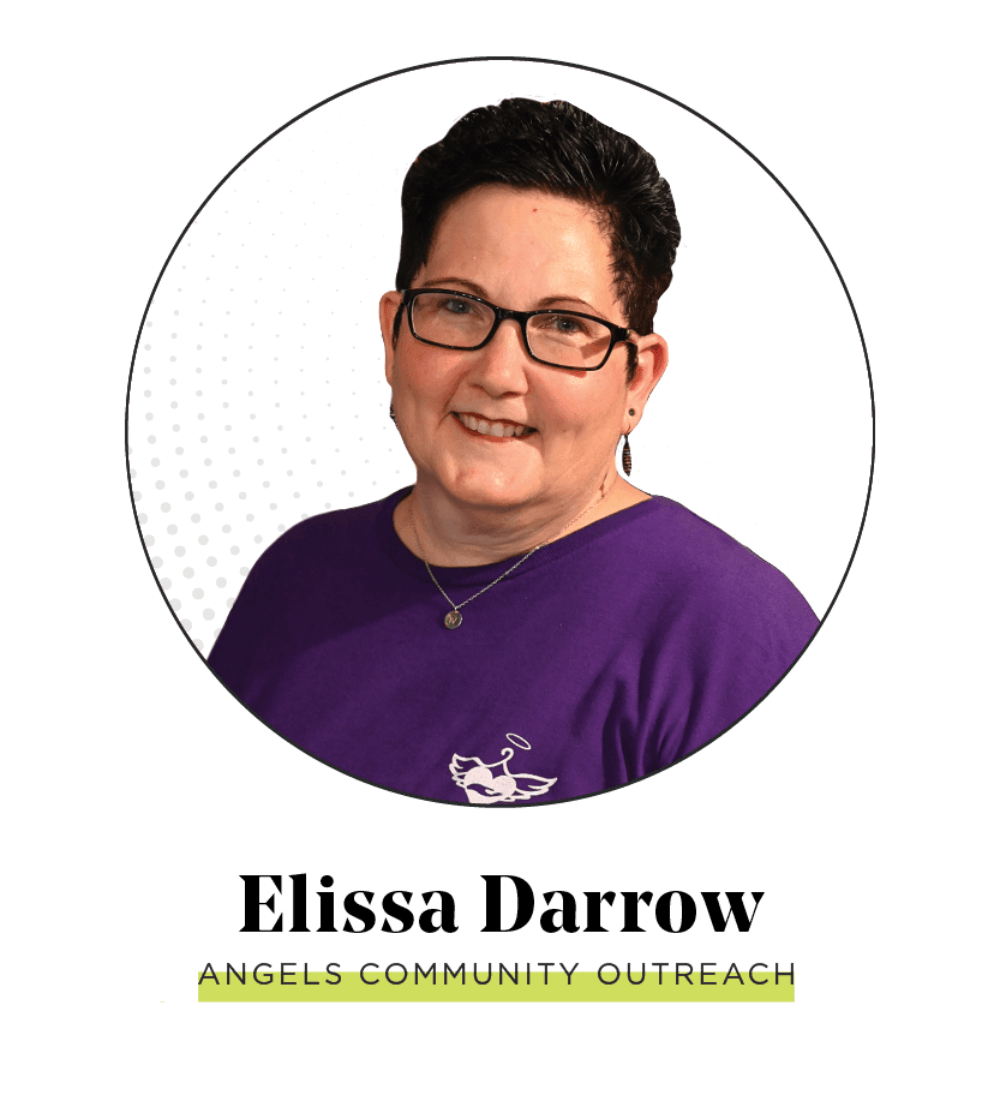
Who: Elissa Darrow, director of Angels Community Outreach. Darrow has grown the organization and continued its mission since her then-12-year-old daughter Katelyn founded it in 2009.
Nonprofit of choice: Angels Community Outreach, an organization that originally began as a clothing closet, but has expanded to no-cost outreach services — including a food and toiletry bank, pet food pantry, prom dress and toy drives, and more — for those financially in need.
What motivates you to try to make Philadelphia a healthier place?
“My children and I were victims of domestic violence. The night I fled my abuser was my turning point. Little did my children know that the night we “went on an adventure and slept in our car stargazing” was the night I finally had the courage to leave my abuser after many failed attempts. The next morning, we walked through the doors of a domestic violence shelter. When we got back on our feet, my children and I were faced with a house fire. Complete strangers stepped up to help us. Now I can pay it forward and spread kindness and compassion to others. We do that at Angels Community Outreach by providing clothing, food and toiletries to families in need.”
What policy would you institute if you could?
“I think it would be wonderful if we could implement volunteering in the school systems. If you show children how to give back and show kindness to others when they are young, they will grow into amazing adults with compassionate hearts.”
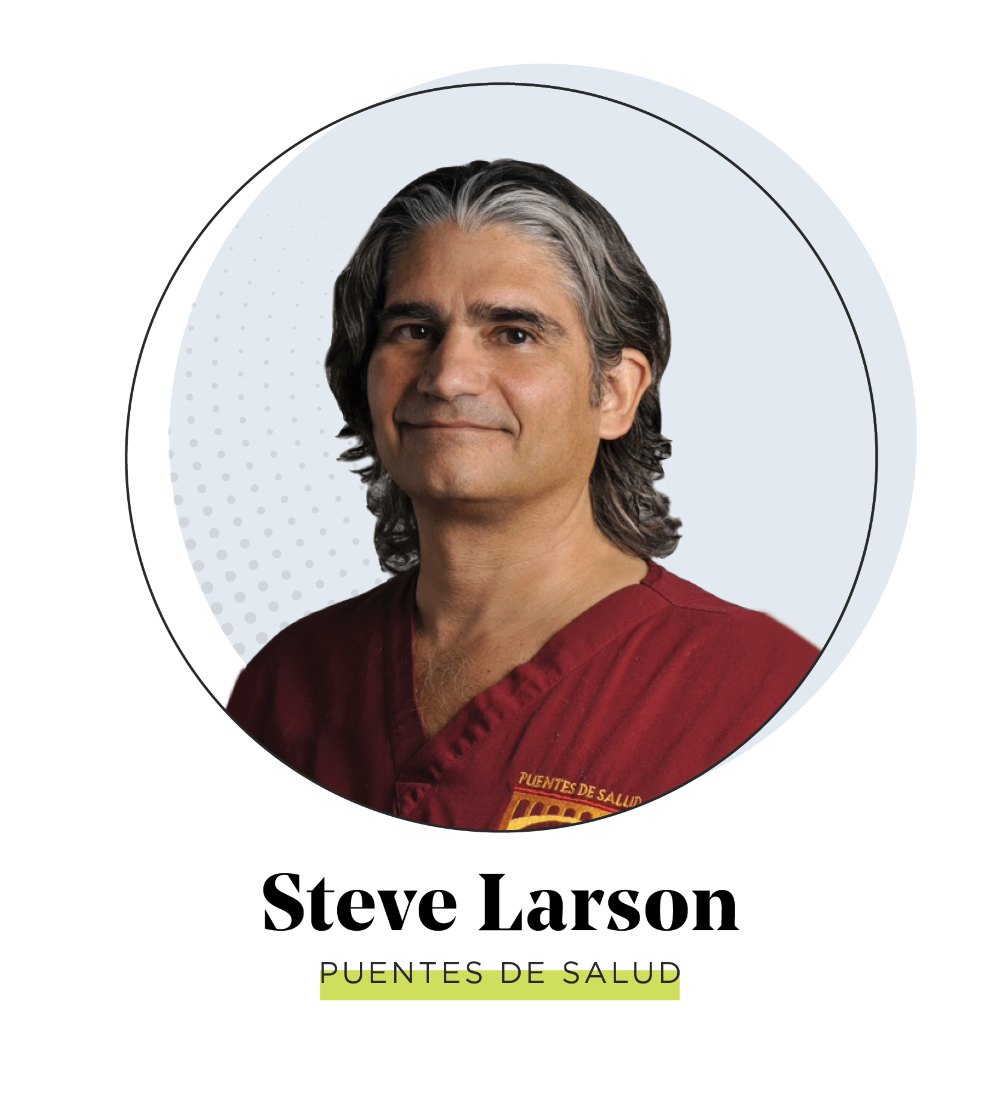
Who: Steve Larson, co-founder of Puentes de Salud. Larson has been actively involved in the provision of healthcare to immigrants in the Philadelphia region since 1993, and has served as the assistant dean for Global Health Programs and an associate professor in the Department of Emergency Medicine at the Hospital of the University of Pennsylvania.
Nonprofit of choice: Puentes de Salud, a nonprofit that incorporates advocacy, education, food security, housing and legal services alongside medical, dental and behavioral health to improve the health and wellness of the ever-expanding Latinx community throughout the Philadelphia area. Over the past decade, Puentes de Salud has also built a series of successful education initiatives, including after-school programs, early-child development, summer reading immersion, and high school preparedness.
What motivates you to try to make Philadelphia a healthier place?
“For 30 years as an emergency medicine physician serving the West Philadelphia community, I’ve witnessed firsthand the well-documented health disparities drawn along racial and socioeconomic lines that dominate the landscape of modern medicine in the United States. As a society, the notion that a “chain is only as strong as its weakest link” resonates with me. And in a city that leads the nation in the percentage of its inhabitants living in poverty, it makes simple sense that we must seek and explore new ways to improve and ensure the health and wellbeing of its inhabitants.”
What policy would you institute if you could?
“Fund education! For a city to lead the nation in poverty and deep poverty, you do not need to be a rocket scientist to predict the trajectory of Philadelphia’s health and wellness. Rather than embracing poor healthcare outcomes and costly services down the road, it makes infinite sense to increase support for education and career development for Philadelphia’s next generation of citizens, with the long-term goal of improving its socioeconomics.”
Vote once per day, every day, now through September 29th!
